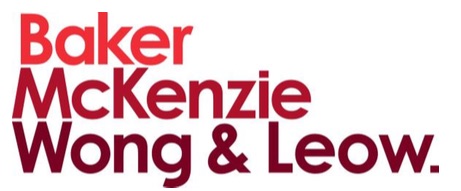10 October, 2017
Facts
Orco International (S) Pte Ltd (the "Applicants") applied to register its trade mark in Class 30 for "Rice" (the "Application Mark"). Louis Dreyfus Commodities MEA Trading DMCC (the "Opponent") sought to oppose the registration of the Application Mark on the basis of its 3 earlier unregistered marks (the "Opponent's Marks"), relying on Sections 8(1) (identical to earlier trade mark), 8(2)(b) (confusingly similar marks and/or goods), 8(4) (well-known in Singapore and/or to the public at large in Singapore), 8(7)(a) (passing off) and 7(6) (bad faith) of the Trade Marks Act (Cap. 332) ("TMA").
Please click on the image to enlarge.
Decision
The opposition was unsuccessful on all grounds.
(i) Section 8(1) – Identical to an earlier trade mark; Section 8(4) – Well- known in Singapore and/or to the public at large in Singapore
Under Section 8(1) of the TMA, a trade mark shall not be registered if it is identical with an "earlier trade mark" and the goods or services for which the trade mark is sought to be registered are identical with the goods or services for which the earlier trade mark is protected.
In this case, the Opponents argued that although the Opponent's Marks were unregistered, they satisfied the definition of an "earlier trade mark" in Section 2(1) TMA, because they were well-known trade marks at the relevant date (i.e., 5 May 2014) to consumers of rice and rice traders in Singapore. As such, the outcome of the decision on Section 8(1) TMA turned on that of Section 8(4) TMA.
The Registrar found that the Opponent's Marks were not well-known to either rice traders or consumers of rice in Singapore. There was no evidence that rice bearing the Opponent's Marks were ever advertised or sold to consumers in Singapore, or imported into Singapore. While the Opponent may have used the Opponent's Marks as far back as 2007, such use was strictly in relation to goods and traders located outside of Singapore and were therefore not well-known to consumers of rice or rice traders in Singapore.
(ii) Section 8(2)(b) – Confusingly similar marks and/or goods
Under Section 8(2)(b) of the TMA, a trade mark shall not be registered if it is similar to an earlier trade mark, is to be registered for goods similar to those which the earlier trade mark protects, and there exists a likelihood of confusion arising from the two similarities.
As the Registrar found that the Opponent failed to establish that any of its earlier marks were well-known in Singapore, there was no "earlier trade mark" to rely on.
(iii) Section 8(7)(a) – Passing off
Section 8(7)(a) of the TMA provides that a trade mark shall not be registered if its use in Singapore is liable to be prevented “by any rule of law (in particular, the law of passing off) protecting an unregistered trade mark or other sign used in the course of trade”.
Although the Opponent enjoyed goodwill in its business, the Registrar found that the Opponent's Marks were not distinctive of the Opponent’s rice in Singapore as none of the Opponent's Marks had been used in Singapore in relation to rice. As such, the opposition under Section 8(7)(a) was unsuccessful.
(iv) Section 7(6) – Bad faith
Section 7(6) TMA provides that a trade mark “shall not be registered if or to the extent that the application is made in bad faith”.
The Opponents argued that there was direct copying of the Opponent's Marks, save for a perfunctory addition of the words "LA FLEUR DE PADDY". However, the Registrar found that the Opponent's evidence did not meet the required threshold, as the evidence did not suggest actual dishonesty or commercially unacceptable dealings.
Comments
This case highlights the potential obstacles which brand owners may face in enforcing their rights in unregistered trade marks, especially where the marks have only been used outside of Singapore. As a matter of prudence, brand owners may wish to register such trade marks in order to circumvent the requirement of an "earlier trade mark", thereby strengthening the merits of their claims in respect of the various grounds of opposition.
For further information, please contact:
Andy Leck, Principal, Baker & McKenzie.Wong & Leow
andy.leck@bakermckenzie.com






